Last year’s publicity isn’t this year’s publicity. Don’t fall behind.
- There’s only one tribal bonfire
For over a quarter of a century, there hasn’t been any substantial competition when it comes to the most popular news broadcaster in Israel. Channel 2, followed by channel 12, have maintained this position since the mid-1990s, and no channel has really posed a threat to them since. In between, there was the splitting of channel 2 into Keshet 12 and Reshet 13 which included changing their channel numbers, which some people expected would create a change in viewing trends. But that didn’t happen. Channel 12 seems to be instilled in the viewers consciousness as ‘good old channel 2’.
The evident gap that widened this year between 12 News and those trying to compete with it, especially Channel 13 News – leaves no room for doubt: Israel has one tribal bonfire.
In times of crisis, Israelis want to get their information from Yonit Levy and Danny Cushmaro, and them only. The owners of Channel 13 News got the memo after their news rating dropped to about a third of that of Channel 12 News. Consequently, the company's CEO, Israel Twito, was dismissed two months ago. Twito was hired in the first place to replace Golan Yokhpaz, who failed to bring the desired results and parted ways with the company.
Is it even possible to clearly detect an elusive and magical trait of sorts that the folks at Channel 13 don’t posses? Probably not. The human resources of both channels are a product of the same limited, genetic pool of people that produces all media personnel in Israel. And that’s why Channel 13 News executives will really have to come up with something new and revolutionary if they want to stay alive.
- Journalists take to the field
Throughout the (many) election campaigns, and in the battlefield of opinions as to combating the Coronavirus, we are seeing more journalists than ever before expressing not only their analysis or ideology, but their actual political views. Some said it’s unreasonable for Naftali Bennet to be Prime Minster; some thought Yifat Shasha-Biton (New Hope) is unnecessarily complicating the combating of the virus; and some ruled that the conflict between Israel and Gaza in May 2021 was part of an election campaign.
“Good job!” some of the viewers exclaim, “this is the transparency we so wished for!” Now, we’ll finally get to know the hidden agendas behind the reportage. But this isn’t necessarily a good thing. When a journalist goes public with their agenda, they become much more committed to it. Suddenly, they have an interest to prove one opinion false over the other. Their honor is on the line. Now add the addiction to compete over “Likes” on social media, and what you get is a fast track to cutting corners. Such a journalist may conveniently “forget” to report about issues that complicate their narrative. They may even shuffle off a quick Google search that could flag the information they’re sharing as “fake news”. Hence, is there no concern that when preparing a news reportage, one’s personal honor will interfere with their professional integrity?
- Tweets first
Even many years after social media had entered our lives, the press continued to enjoy VIP access to information published by politicians and other influencers in the industry, but that’s no longer the case. Press releases, political or even commercial ones, are first and foremost published on social media, in order to bypass the filters of the press.
Press releases are dead. Long live the newsfeed releases!
- The new enemy of the people – the Lobbyists
The police investigation into the largest lobbying company in Israel, Policy One, struck yet another blow to the industry. Just bringing up the title “lobbyist” regarding potential legislation or government regulation, automatically taints the reputation of those in favor of the cause, inviting along a barrage of associations about misconduct and secret envelopes. Ministers in the ‘government of change’ are already competing among themselves as to who will impose draconian restrictions on ties to lobbyists. In practice though, any stakeholder that wants to bring their cause to the attention of government officials, needs a mediator to face stakeholders with opposing interests, and law makers, ministers and regulators are not naive. Worse, whenever an official lobbyist is ousted, he is replaced by an “unofficial” lobbyist, who operates precisely in the grey zone between capital and government.
- New government – New media (agenda)
Say what you will about Benjamin Netanyahu, he has never been accused of limiting the stream of headlines to the networks. The media has yet to fully recover from his terms as prime minister, but the winds of change are felt in the studios and within the networks. One of the most significant changes is the representation of Arab society in Israel. Suddenly, the death of an Arab MK is a headline. Suddenly, the news anchors are interested in internal politics of the Arab sector, and Channel 12 News now has an (excellent!) Arab commentator. Other issues that are brought to the fore are coming from ambitious women in office, who see their ministries as more than just a cushy job opportunity: Merav Michaeli, brought to you by traffic jams, is bringing the issue of transportation to the headlines; Tamar Zandberg – due to the hellish summer the world underwent and backed by Joe Biden – has made the climate crisis an actual news item in Israel for the first time; Yifat Shasha-Bitton dreamed of the Ministry of Education; and Meirav Cohen dreamt of social equality.


